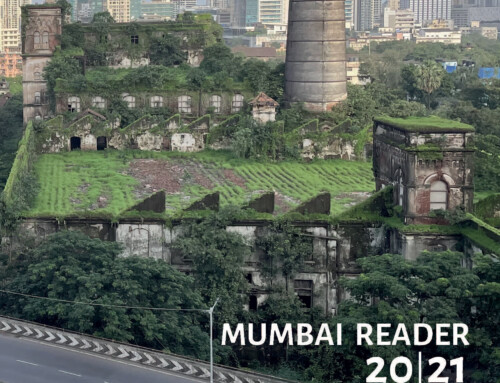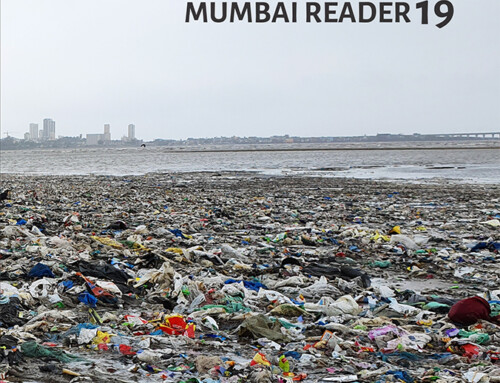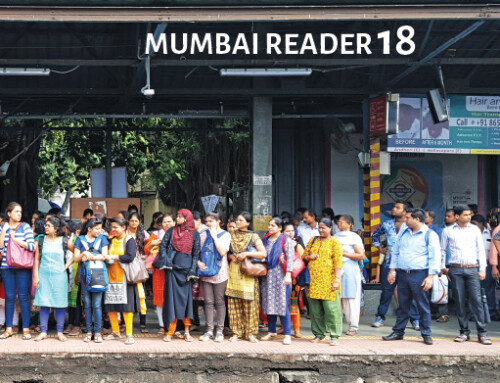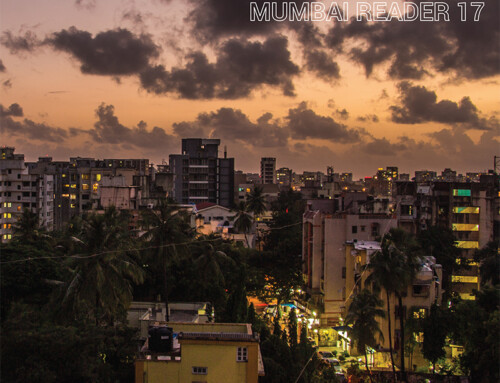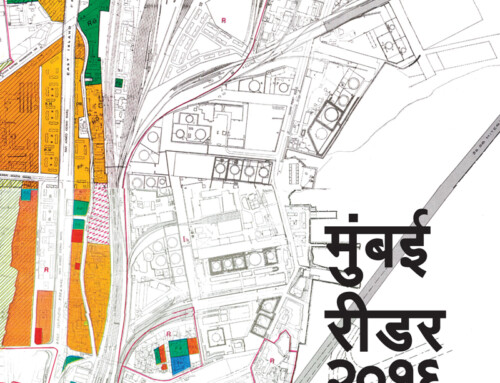Project Description

MARATHI MUMBAI READER 2006
Marathi Mumbai Reader’06 is available for reference and purchase at UDRI Resource Centre.
PREFACE
The difficulty in representing Mumbai now is that there is always a feeling that such representations may fall into one of the several limitations of reading the city linearly. These limitations of linearity include making gross generalisations, or getting lost in seductive micro-narratives, or constructing incredible scenarios through meticulous empiricisms. While the generalisations strip the complexities of the city from the readings, the micro narratives are often myopic. Similarly, the approaches of using empiricisms are driven by preconceived agendas for problem solving in the city.
Individually, the generalisations, micro narrations and the empiricisms are unable to capture the complexity of Systems, Organisations & Space in the city. This impossibility of a conceptualising the city warrants the need to read the city in multiple ways that simultaneously include an almost palimpsest like reading of all the approaches. To talk about the city then, would be to talk simultaneously in multiple disparate ways, in multiple languages and with multiple perspectives. The Mumbai Reader is an attempt to undertake a representation of the city that enables innumerable readings through a simultaneous and non-linear compilation of multiple voices in the city. The contents include some of the most recent perspectives on culture, economy, geography and history of the city. While it records the routine mainstream labour history and planning discourse types of writings; it also overlaps these with some of the current debates on absurdities that the city is faced with the issues relating to bar-dancers, changing of street names etc. The perspectives include voices from the bureaucracy, civil society organisations, academics, industry, judiciary, media, professionals, artists and many others. The Reader does not claim to be a comprehensive or an exhaustive compilation of readings on the city. It is rather an attempt to provide a glimpse of the complex dynamic of the city of Mumbai. The process of making this compilation was initiated through a call for papers made to a varied set of individuals in order to ensure an array of perspectives that would present to a reader diverse possibility of perceiving the city.
This work is licensed under a Creative Commons Attribution-NonCommercial-NoDerivatives 4.0 International License.
Attribution-NonCommercial-NoDerivs
CC BY-NC-ND
TABLE OF CONTENTS
- Vision Mumbai: Transforming Mumbai into a World Class City
- Urban Transportation in Mumbai
- My City, Mumbai: The NGO Force
- Making Markets Work for the Poor
- Heritage Legislation & Conservation-Excerpt
- Imagining the City: The Naming of Colonial Bombay’s City Divisions
- Travails of an Ordinary Citizen; A Tale from Mumbai
- Chronicle Of Mill Murders Not Foretold
- Agenda for Bombay
- Before converting Mumbai to Shanghai + Challenge of Mumbai’s metropolitan area development
- Mumbai’s redevelopment + Rent Control Act
- Situation of Informal Settlements in Mumbai
- ‘Slums’ A Solution to the Housing Problem
- Learning From Mumbai
- The Heart of the City
- Housing Policies for Mumbai
- Use of FSI in Development of Land and Housing Markets
- Barcode + Transcending the City
- Re-visioning Mumbaiendered View – A Gendered View
- Post-Industrial Transitions
- Turning Scrap into Gold + Chronicle of a Riot Foretold
- Stories of Entrepreneurship + Of Mangroves and Leopards
- Advanced Locality Management
- Neighbourhood Project
- Terrace farming
- A Study of the Eastern Waterfront of Mumbai
